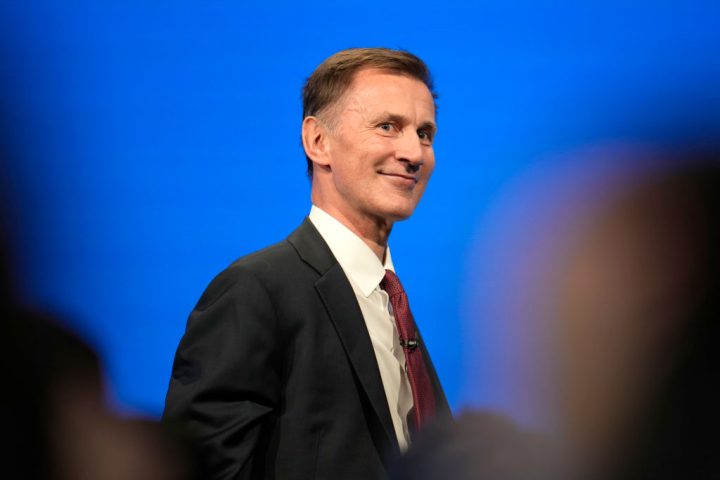Jeremy Hunt needed some good news this morning, when the monthly public sector finance update was released by the Office for National Statistics (ONS). Having promised meaningful tax cuts last month – and then rowed back expectations this month – the Chancellor was hoping for a notable surplus and reduction in borrowing to give himself a bit more room within his fiscal rules to cut tax.
January delivered. The ONS reports a surplus of £16.7 billion in January 2024 – not only double the surplus of the same month last year, but a record-breaking surplus (in nominal terms) since records began. Receipts jumped up to £111.4 billion – almost £4 billion more than January 2023 – while borrowing for the financial year rose to £96.6 billion, £3.1 billion less than was reported in the same time frame for the year before.
The Treasury tends to get an income bump in January when self-assessment tax returns are due. But the unexpected news was that debt servicing costs fell substantially: down to £4.4 billion, £2.7 billion less than was originally estimated by the OBR. Thanks to lower payments, it looks like government borrowing will fall short of the OBR’s expectations for the fiscal year by just under £10 billion.
But how good is this news? Even a record-high surplus has very little impact on the UK’s overall trajectory, in which the national debt continues to surge upwards. Britain will still borrow something close to £100 billion in the fiscal year. Ministers will insist this is the cost of the Covid crisis – what it means to repay the pandemic debt.
But the debt is not being paid down – it is merely being serviced (with much higher interest rates than were ever expected at the start of the pandemic). Public sector net debt, as reported by the ONS this morning, sat at £2.6 trillion at the end of last month: ‘1.8 percentage points higher than in January 2023 and remains at levels last seen in the early 1960s.’ Indeed, the monthly updates are a reminder that the government’s pledge to ‘get debt falling’ in 2023 has not only been missed: it was possibly the most unrealistic pledge in the list of five.
Nor does it look like January’s good news is going to provide that much more room for tax cuts. Capital Economics estimates that Hunt now has roughly £15 billion worth of room, which means that whatever is announced (this might just sustain a pence or two off income tax) is going to be smaller than the tax cuts announced in the Autumn Statement last year. That’s going to be tricky for the Chancellor, who promised something substantial last month and who still has the Prime Minister insisting that tax cuts are coming.







Comments